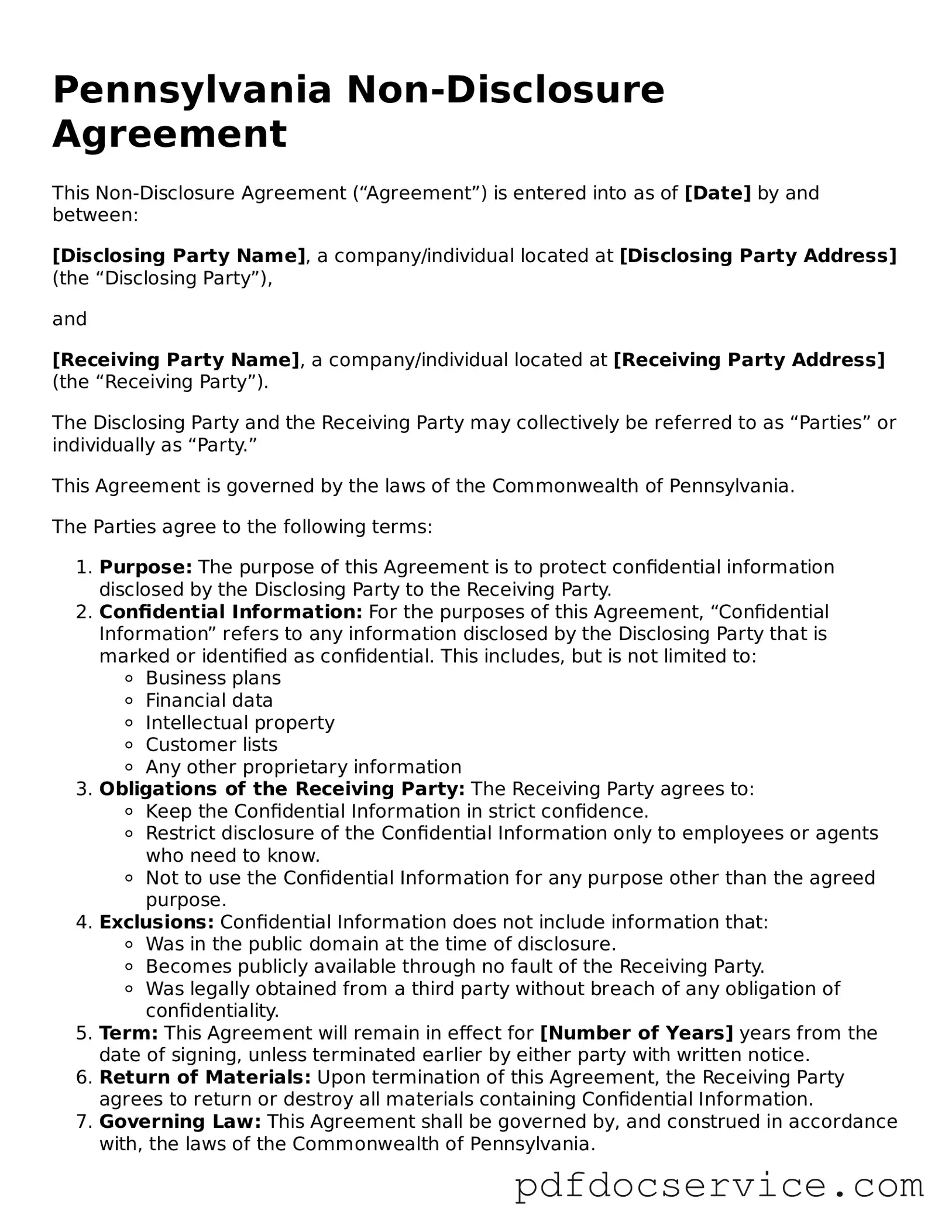Printable Non-disclosure Agreement Template for Pennsylvania
A Pennsylvania Non-disclosure Agreement (NDA) is a legal contract designed to protect confidential information shared between parties. This form establishes the terms under which sensitive information can be disclosed and ensures that the receiving party does not misuse or disclose that information without permission. Understanding the implications of this agreement is crucial for individuals and businesses looking to safeguard their proprietary data.
Open Non-disclosure Agreement Editor

Printable Non-disclosure Agreement Template for Pennsylvania
Open Non-disclosure Agreement Editor

Open Non-disclosure Agreement Editor
or
Get Non-disclosure Agreement PDF
Finish the form now and be done
Finish Non-disclosure Agreement online using simple edit, save, and download steps.